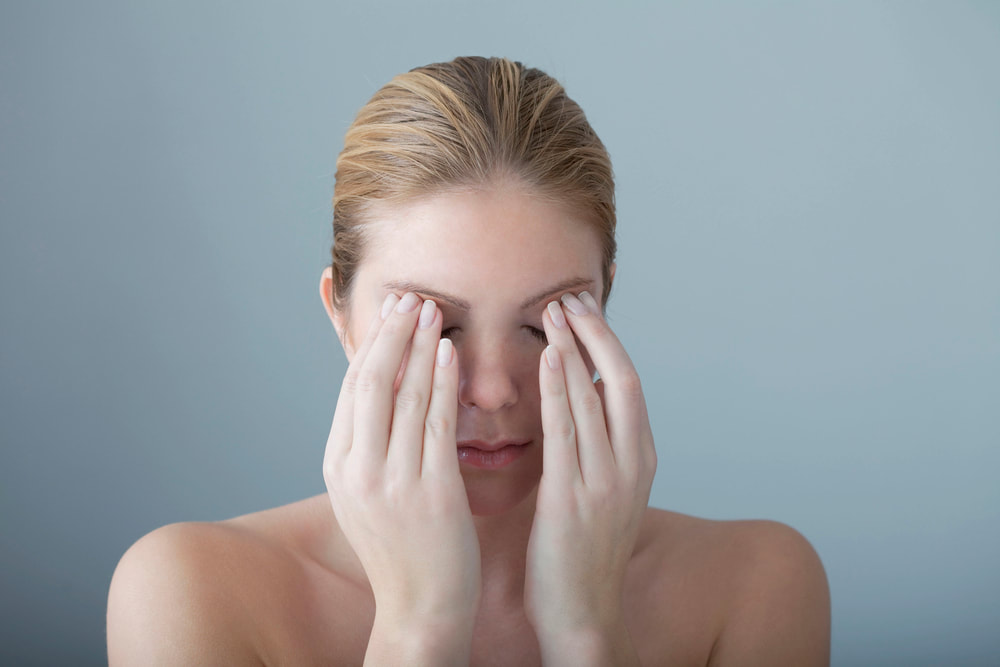What is thyroid eye disease?Thyroid eye disease can occur due to an overactive thyroid gland. For unknown reasons, the gland produces excess thyroid hormones. This excess production causes a condition called Graves’s disease. In some cases, people with Graves’ disease may go on to develop eye disease. According to American Thyroid Association, about one-third of people with hyperthyroidism develop eye symptoms. Eye symptoms develop when the immune system releases an antibody that affects the tissues in the eye. Thyroid eye disease symptomsThyroid eye disease can occur at any time, but it is common for eye symptoms to develop within the first 12 months after a diagnosis of Graves’ disease. Symptoms of thyroid eye disease may include:
According to the Endocrine Society, about 3-5 percent of people with thyroid eye disease may develop serious complications that threaten vision loss. For example, inflamed tissue can compress the optic nerve and cause vision loss. Bulging eyes can make it difficult to close the eyelids and lead to corneal ulcers. Diagnosis of thyroid eye diseaseAnyone that has thyroid disease should see an eye doctor to check for vision problems. Doctors diagnose thyroid eye disease based on symptoms and an eye exam. Usually, thyroid levels are also measured to determine if thyroid hormone levels are high. An eye exam plays a critical role in diagnosing thyroid eye disease. During the exam, the doctor can check for signs of inflammation and vision issues. TreatmentAccording to the website Prevent Blindness, the active phase of thyroid eye disease can last for up to three years. If left untreated, three years of inflammation can take its toll on the eyes even if inflammation gradually decreases.
Treatment is aimed at reducing inflammation and protecting the eye from damage. Treatment may include the following: Steroids: Steroids may be recommended to treat inflammation that can affect the optic nerve. Steroids may be administered intravenously or by mouth, depending on how severe symptoms become. Eye drops: Graves’ eye disease may also cause irritated eyes. Eye drops can help ease discomfort by keeping the eyes moist. Wear sunglasses: One of the symptoms of thyroid eye disease is sensitivity to sunlight. Wearing sunglasses can help protect the eyes from the light and damaging UV rays too. Wearing glasses that decrease double vision: Some people with Graves’ ophthalmopathy develop double vision. This can make everyday activities challenging. Special glasses with prisms can help reduce double vision. Eyelid surgery: People with thyroid eye disease may have eyes that look like they are protruding. This occurs because the eyelids may tighten and pull the lower lid down while also pulling the upper lid up. Complications can develop, such as problems completely closing the eyelids. When the eyelids do not close, it can leave the cornea exposed. Eyelid surgery may help. If you have thyroid disease, especially Graves’ disease, it is important to have regular eye exams. Catching problems early may prevent them from becoming worse. If you would like to ask whether an appointment with one of our eye doctors would be appropriate at this time, call our office at 508-746-8600. Comments are closed.
|
EYE HEALTH BLOGCategories
All
Archives
July 2024
|
|
Kadrmas Eye Care New England
55 Commerce Way, Plymouth, MA 02360
14 Tobey Road, Wareham, MA 02571 133 Falmouth Road (Rt 28), Mashpee, MA 02649 |
Phone Number:
1-508-746-8600 Hours: Monday through Friday — 8 AM – 4:30 PM |


 RSS Feed
RSS Feed
